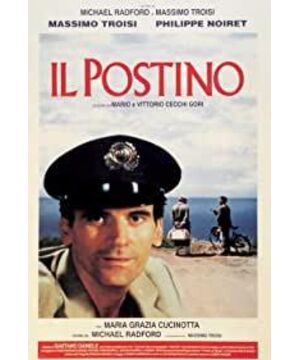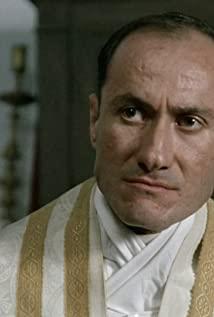how much the sea
comes from the sea
all the time
— Neruda
poet is the ultimate representative of a country and city, because only poetry can interpret the image, blood and soul of a nation and record the profoundness of this land History and rich spirit. Therefore, Pushkin is the sun of Russia, and Marquez has become synonymous with Colombia. The British Empire can only last for half a century, but Shakespeare still illuminates the glory of the earth. Of course, there are many ways for poets to write poetry. In addition to words, architecture, paintings, and movies are all carriers of poetry. Van Gogh makes people think of Amsterdam, Gaudí makes people yearn for Catalonia, and Ozu Yasujiro attracts people to Kita Kamakura.
For Chile, a small country in the corner of the American continent, most of the time it is just a small and long icon on the world map. However, because of the great poet Neruda, Chile has gained fame and praise across the Atlantic and Pacific. In the early 1950s, one of the world-famous motorcycle trips between Che Guevara and his friends was in Chile. Che Guevara described himself as being in Neruda's country. It can be seen that his poetry made him a representative of his country twenty years before Neruda won the Nobel Prize. After Neruda became famous in the world, his influence extended to different fields, especially as an enlightening mentor for the younger generations of literary creation.
On the tenth anniversary of Neruda's death, the Chilean literary community launched a special event to commemorate him. Many writers created a work for Neruda. One of the novels, The Postman, is particularly eye-catching, depicting the touching story of Neruda's friendship with the local postman on the Black Island. The theme of the story is very clichéd, and the plot is relatively simple. The book has only more than 100 pages in total. The author puts a poetic coat on friendship and love with subtle and humorous language. The book perfectly seamlessly connects Neruda's verses and character stories. Not only completed his original intention of paying tribute to Neruda, but at the same time made the work itself an excellent novel.
The postman in the story is a 17-year-old young boy. He didn't want to be engaged in fishing industry like his grandparents. Fortunately, he got a job delivering letters to Neruda by chance. The little postman has the same inner characteristics as other boys of the same age: shy, confused and timid, but full of curiosity and desire for everything in the outside world, especially the opposite sex. Although there were opportunities to contact the great poet every day, the little postman did not dare to bother Neruda easily. He waited a long time before he plucked up the courage to ask the poet for an autograph. It was more than a month after going to work. The postman bought Neruda's "Ode to the Elements" with his first salary. Not only did he get the coveted signature, he also boldly proposed to learn from poets to write poetry. Before that, he didn't even dare to look directly at the poet and his wife dancing.
In a poetic country, poets are not strictly a profession. Pablo Neruda started writing poems at a younger age than the postman, and he created the world-renowned "Twenty Love Poems and a Song of Despair". Only twenty years old. Like other fathers, his father believed that poetry was not as valuable as law and medicine. The reason why Neruda is Neruda is that he persisted in his poetic life despite his father's opposition, and even abandoned his father's surname to choose the same clan as the 19th-century Czech poet Jan Neruda.
Perhaps under the influence of the poet, the postman inadvertently learned the figurative nature of poetry. On the small island beach where the sea and the sky are the same color, the poet and the postman sit side by side and look at the sea. Neruda recites his own work. The voice fluctuates with the rippling waves. The postman feels dizzy. He casually says "I'm like a boat bumping in your words" to the great poet. Neruda told the postman that metaphors are all accidental, which means that poetry is accidental inspired by inspiration. Of course, love as beautiful as poetry can only be encountered by accident unknowingly. After the postman came back from the poet's house, he came to a small bar by ghosts. At that moment in the small space, the girl playing table football inside hit the little postman's ignorant heart deeply.
In the film adaptation of the same name, the Italian actor exquisitely and accurately restored the kind of love at first sight written in the book that it is difficult and unstoppable. Every teenager who has experienced the seventeen-year-old can experience that beautiful and uncomfortable feeling. Boys often look dull and behave dumbly. Instead, the girl can hide her heart with relative composure, or use a resisting gesture as a means to attract the other person closer. The French poet Rimbaud wrote in a poem: "As long as we have fiery patience, we will be able to enter that magnificent city by dawn." The original name of the novel is "Fiery Patience", which aptly summarizes the postman’s mental journey. Struggling with behavior. The depressed postman asked the famous Neruda for help in order to gain the girl’s heart. He did not know whether it was due to love or the deepening of friendship after the two got acquainted with each other. Tips provided. Perhaps the poet saw his former figure in the young postman, or perhaps the stubbornness of an infatuated teenager, he didn't mind being embarrassed and rude. The moving story of the great poet helping a little postman to tease his younger sister began. The poet provided his own poetry for free, but the postman arrogantly declared that "poetry does not belong to the creator, but belongs to the user."
Fortunately, it is a poetry than a house and a house. When the car was working, the girl’s ears could be moved by the beautiful lines of poetry. "Your smile is like a butterfly on your face" "I like it when you are silent, because you don't seem to be by my side" "You smile like a rose, like the sound of a sharp arrow, falling like grains ..." Wouldn't it be cruel to reject these deep and affectionate verses? Only in the beauty of immersive love can I understand how aptly is Natsume Yanshi’s translation of "I love you" as "the moonlight is good tonight", and how Ouyang Xiu "willow on the moon, people meet after dusk" Touching. Traveling through the space of decades of time tunnels and the vast Pacific Ocean, Chile’s mother-in-law was actually the fiercest stumbling block before a man and a woman got married. However, the slight difference is that the Chilean mother-in-law was able to find that the love poem her daughter received was copied from Neruda. This should also prove the strong poetic atmosphere of Chile from the side. The mother's words to persuade her daughter were so poetic: "My child, the river swept away the stones, and if it sounds nice, let the girl get pregnant."
After all the hardships passed by the mother-in-law, the postman got his wish and reaped the love. However, the poet who gave him the most help is leaving to become an ambassador in Paris. The book is interspersed with the plot of Neruda helping the Communist Party campaign, which is not in the movie. It was during Paris that Neruda's future fate proved that politics is not worth mentioning in the face of poetry. The honor of the Nobel Prize is actually insignificant in the face of great poetry, although even Neruda was excited when he received a letter from Sweden. The ending of the novel and the movie are quite different. The book reproduces the persecution and death of Neruda after the military coup, while the one who died in the movie became a postman. But there is one thing in common. Both the poet and the postman died in the cruel political whirlpool. No matter who is dead, poetry is always immortal, and politicians and merchants have long since disappeared.
The voice recorded by the postman for Neruda: "First, the sound of waves in the bay, soft; second, the waves, loud; third, the sound of wind passing over the cliff; fourth, the sound of wind gliding over the bushes ; Fifth, the sound of my father’s sad fishing nets; sixth, the bells of the church; seventh, the sky full of stars on the island, I have never felt the sky so beautiful; eighth, the sound of my son’s heartbeat." Above In one paragraph, the charm of the combination of film and text makes the poetry more full and thick.
There is no need to ask whether the postman really exists, we are willing to believe in a beautiful existence, because life needs real and fictional poetry. In the same way, you don’t need to care that the real black island is not just a small town dozens of kilometers away from Santiago, but the filming location is a small Mediterranean island near Naples. The author of the novel has lived in exile in Europe for more than ten years, and went to live on the black island to experience Neruda's experience for creation. Neruda first came to Black Island to seek inspiration for poetry. Later, a portrait of Whitman was hung on the wall of his former residence. Poetry is passed down in such a poetic and beautiful way. The actor of the postman in the movie postponed the heart transplant operation in order to star in the film because he wanted to take his heart to the film, and 12 hours after finishing the last shot, he left the world.
View more about The Postman reviews










